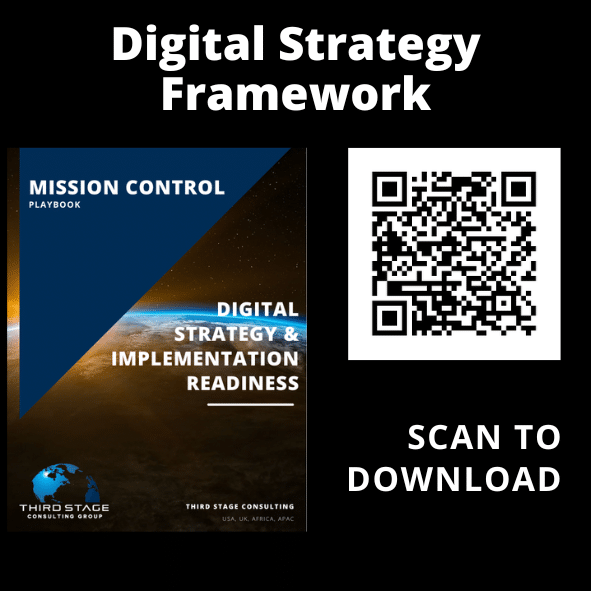In the dynamic business world, staying ahead of the curve often means embracing technology that streamlines operations, boosts efficiency, and enhances competitiveness. One such technological marvel that has proven indispensable for businesses of all sizes is the Enterprise Resource Planning (ERP) system.
It’s no mystery that ERP systems are expensive and complicated to implement. While the benefits of ERP systems are substantial, it’s crucial to address the elephant in the room: their cost and the complexity of implementation. These factors can be significant hurdles for many businesses, tiny to medium-sized enterprises (SMEs).
Table of Contents
ToggleThe Cost Factor
ERP systems, especially those tailored for larger corporations, can have a hefty price tag. This cost doesn’t just encompass the software itself but also includes expenses related to hardware, implementation services, training, and ongoing maintenance and support. For many businesses, this represents a substantial financial commitment.

Strategies to Mitigate Costs:
- Choose the Right System: Not all ERP systems are created equal. Selecting a system that aligns with your specific business needs and budget is essential.
- Understand the Total Cost of Ownership: Vendors want you to think that Cloud-based ERPs can be more cost-effective because this model makes them the most money. Though that could be the case, businesses must understand the sneaky hidden costs.
- Scalable Solutions: Opt for an ERP system that allows you to start small and add modules or features as your business grows.
Complexity of Implementation

Implementing an ERP system is not a plug-and-play affair. It’s a complex process involving significant changes in business operations.
Challenges in Implementation:
- Integration Issues: Integrating an ERP system with existing processes and systems can be challenging, especially if the business relies on legacy systems.
- Change Management: Employees often resist changes, particularly ones as big as implementing an ERP system. This resistance can hinder the successful adoption of the system.
- Training Requirements: A new system requires employee training, which can be time-consuming and costly.
Overcoming Implementation Challenges:
- Effective Planning: A well-thought-out implementation plan, including clear objectives and timelines, is crucial.
- Employee Involvement: Involving employees from various departments in the planning and implementation can help alleviate resistance to change.
- Choosing the Right Partner: Collaborating with an experienced, independent, and technology-neutral partner can help navigate the complexity of implementation while prioritizing business goals without biases.

Balancing Cost and Complexity with Benefits
While the cost and complexity of ERP systems are significant, they must be weighed against the potential long-term benefits. A successful ERP implementation can improve efficiency, decision-making, and collaboration, resulting in substantial cost savings over time.
Conducting a thorough cost-benefit analysis is essential for businesses contemplating an ERP system. Consider not only the immediate financial outlay but also the potential long-term gains in productivity, efficiency, and competitiveness. The key is to approach ERP systems not just as a software purchase but as a strategic investment in the future of your business.
The Crucial Reasons Your Business Needs to Embrace ERP Systems
Understanding ERP Systems

First, let’s demystify what an ERP system is. It’s a software platform that combines numerous business processes—like inventory management, accounting, human resources, and customer relationship management—into a single, integrated system. This integration facilitates the flow of information across departments, ensuring that every part of your organization is on the same page.
Increased Efficiency
One of the primary benefits of ERP systems is the significant efficiency boost they offer. By automating routine tasks and streamlining business processes, ERP systems reduce the time and effort required to complete daily activities. This efficiency saves time and minimizes the likelihood of errors that can occur with manual handling.
Better Decision Making
ERP systems provide real-time data and analytics, offering insights into various aspects of your business. This data-driven approach helps make informed decisions, identify trends, and forecast future needs. When leaders have access to up-to-date information, they can make more strategic and less reactive decisions.
Improved Collaboration
ERP systems break down silos between departments. With a unified system, different teams can easily access and share information. This improved collaboration can lead to better project management, smoother internal communication, and a more cohesive company culture.
Scalability
As your business grows, so do your needs. ERP systems are designed to be scalable, meaning they can adapt to your changing business requirements. Whether adding new users, functionalities, or updating processes, ERP systems can grow with your business, ensuring you don’t outgrow your technology infrastructure.
Cost Savings
While the initial investment in an ERP system might seem high, the long-term savings are substantial. ERP systems can significantly reduce operational costs by improving efficiencies, reducing redundancies, and streamlining processes. Additionally, having a single system reduces the need for multiple software solutions, which can be more costly to maintain.
Compliance and Risk Management
In an era of ever-changing regulations, ERP systems help businesses stay compliant. They can track regulatory changes and ensure your business adheres to the latest standards. Moreover, ERP systems enhance risk management by providing tools that help identify, assess, and mitigate risks.
Enhanced Customer Service
ERP systems often include customer relationship management (CRM) tools. These tools help manage customer data, understand customer preferences, and enhance customer interactions. A better understanding of your customers can lead to improved service, increased customer satisfaction, and loyalty.
Best of Breed vs. ERP Approach

It’s important to note that the industry is shifting towards promoting best-of-breed solutions. Therefore, any discussion around ERP costs must incorporate this approach.
Definition: The “best of breed” approach involves selecting the best software solution for each business function. For example, a company might choose one software for accounting and another for CRM (Customer Relationship Management). Yet another for inventory management, each recognized as the best in its specific category.
Best of Breed Advantages:
- Specialization: Each software excels in its specific function, offering deep functionality and features tailored to that particular area.
- Flexibility: Companies can choose solutions that best fit their unique processes and requirements in each department.
- Innovation: Best-of-breed solutions often lead in terms of innovation and staying ahead with the latest industry-specific features.
Disadvantages:
- Integration Challenges: Different systems may not communicate seamlessly with each other, leading to data silos and integration headaches.
- Higher Complexity: Managing multiple systems requires more effort and coordination, potentially leading to inefficiencies.
- Cost: Purchasing, maintaining, and integrating multiple best-of-breed solutions can be more expensive than a single ERP solution.
Core ERP Advantages:
- Integration: All business processes are integrated, ensuring smooth data flow and visibility across the organization.
- Simplified IT Landscape: A single system is easier to manage, update, and maintain compared to multiple best-of-breed solutions.
- Cost Efficiency: In the long run, ERP systems can be more cost-effective due to reduced integration and maintenance expenses.
Disadvantages:
- Jack of All Trades, Master of None: While ERP systems integrate various functions, they may not offer the depth of features in specific areas compared to best-of-breed solutions.
- Flexibility: ERPs can be less flexible, with businesses needing to adapt their processes to the software rather than the other way around.
- Implementation Complexity: Implementing an ERP system can be a lengthy and complex process, requiring significant time and resources.
The choice between a best-of-breed approach and an ERP system depends on various factors, including the specific needs of the business, the industry it operates in, the size of the organization, and its future growth plans. Smaller, more nimble companies or those with highly specialized needs might lean towards best-of-breed solutions, while larger organizations looking for streamlined operations and data unity might find more value in a comprehensive ERP system. The decision is not always clear-cut and requires a careful evaluation of both the immediate and long-term needs of the business.
Conclusion
In the fast-paced business world, staying competitive often means staying technologically advanced. ERP systems are no longer a luxury but a necessity for businesses aiming for efficiency, growth, and sustainability. ERP systems offer a comprehensive solution that can drive your business forward by integrating various business processes, providing real-time insights, and enhancing collaboration. Ignoring ERP systems is not just a missed opportunity; it’s a step back in a constantly moving forward world.
If you’re looking for a great place to begin your journey toward business improvement, innovation, and staying ahead in your industry, look no further than our engaging podcast series and informative video content. Our podcasts offer a treasure trove of insights, featuring discussions with industry experts, thought leaders, and successful entrepreneurs who share their experiences, strategies, and tips.
Each episode is designed to provide practical advice, the latest trends, and inspirational stories that can help you navigate the complex business world. Similarly, our videos are informative and visually engaging, offering tutorials, case studies, and expert interviews. These resources are tailored to help you better understand critical topics ranging from technology and marketing to leadership and organizational culture.
By tuning into our podcast and watching our videos, you’re not just passively learning but actively engaging with a community dedicated to business excellence. Whether you’re a seasoned professional or just starting, these resources are an ideal starting point to spark new ideas, refine your strategies, and keep you informed about the latest in your field.
I also highly recommend downloading our newly released 2024 Digital Enterprise Operations Report, which features our 10 ERP Systems of 2024 as well as industry trends and strategies. Please feel free to contact me directly with any questions or feedback at kyler.cheatham@thirdstage-consulting.com. I genuinely enjoy hearing from our audience.





